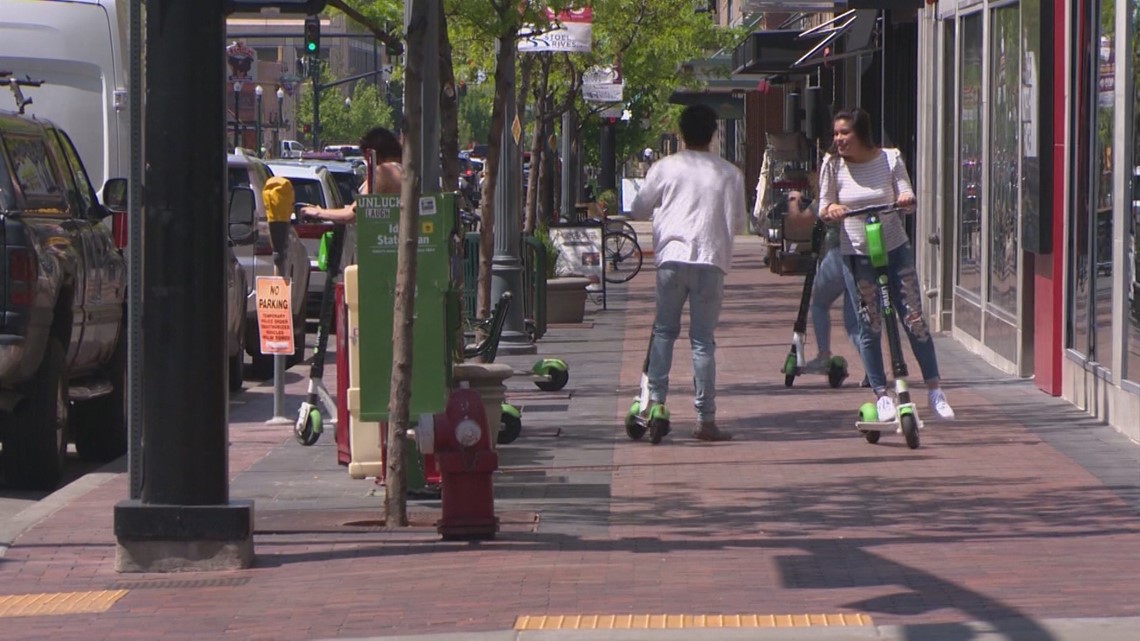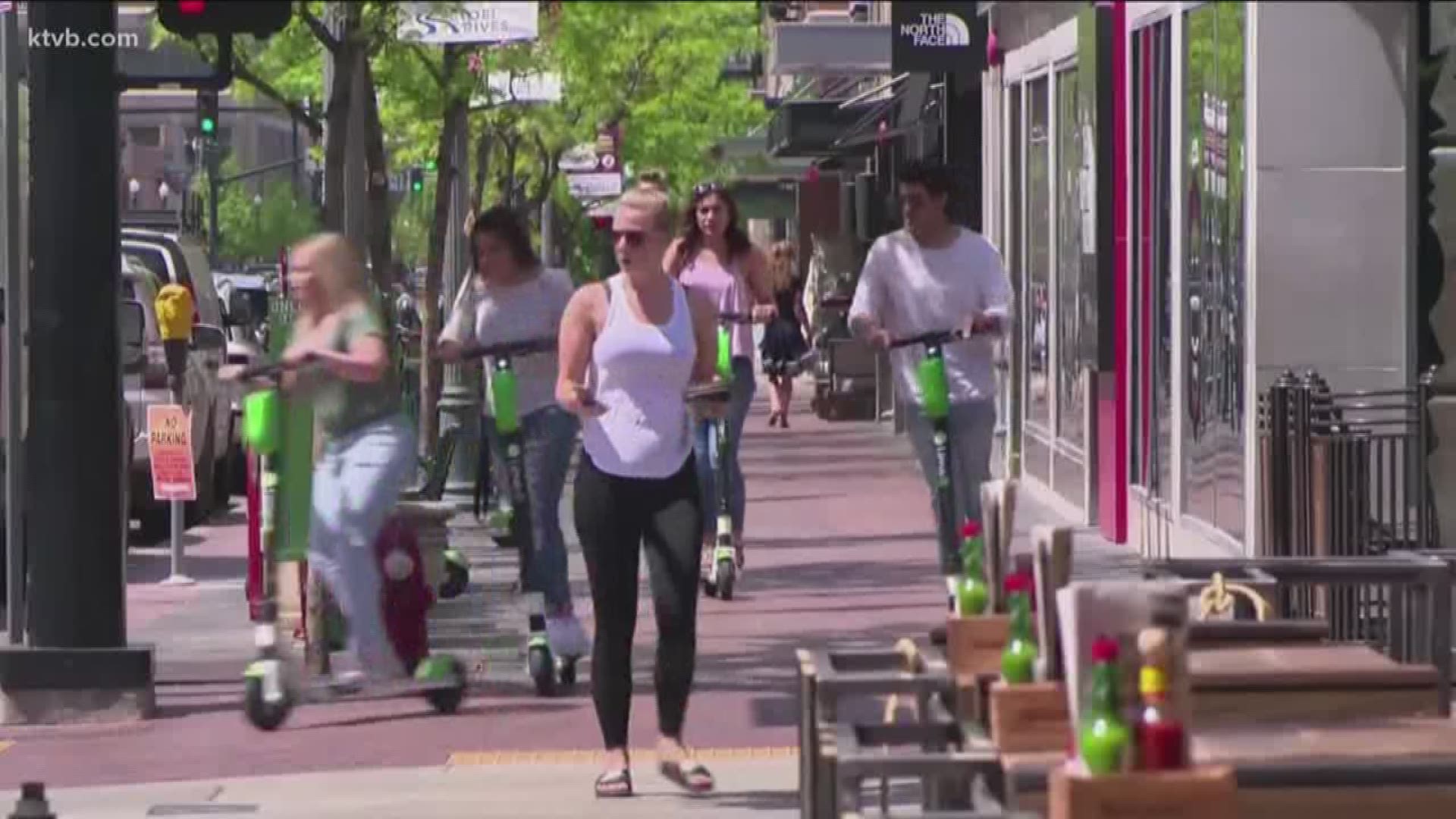BOISE, Idaho — E-scooters are popping back up on Boise sidewalks as coronavirus restrictions ease across the state - but are they safe to use?
The e-scooter companies say they are taking steps to protect customers and minimize the spread of the virus.
Lime spokeswoman Mackenzie Viau said the company is stepping up cleaning practices. Lime has about 200 e-scooters in Boise.
“Every time the vehicles are charged, they’re being disinfected, and the same goes when any mechanical repair is being performed,” Viau said.
At competitor Spin - which has about 80 e-scooters in Boise - the new regulations are similar. The scooters will be cleaned every time they are brought in for a charge or touched by an employee, which will depend on how often they are used, the company said.


But Brandon Atkins, an expert at Central District Health, says riders may need to take matters into their own hands to make sure the e-scooter they are hopping onto is disinfected.
The National Institute of Health, the CDC, UCLA, and Princeton University all say COVID-19 can survive on surfaces anywhere from a few hours to a few days.
“It really depends on the surface and the context of where you’re finding that surface,” Atkins said.
UV rays from sunlight can kill the virus, but scooters won't always be in the sun, he added.
Atkins says the best bet is for riders to take a little extra time and disinfect the parts of the scooter they will be touching themselves. E-scooter companies have also advocated for riders to wash their hands before and after using the scooters.
“If you’re thinking about the handles themselves, it could be on there for days if it’s underneath and not getting direct sunlight,” Atkins said. “I would certainly advocate for people taking their own sterilization swabs and wiping down the handles before they engage in them.”
At the end of the day, however, the risk of person-to-person transmission of coronavirus is much higher than the risk from touching surfaces, Atkins said.
At KTVB, we’re focusing our news coverage on the facts and not the fear around the virus. To see our full coverage, visit our coronavirus section, here: www.ktvb.com/coronavirus.
Facts not fear: More on coronavirus
See our latest updates in our YouTube playlist:

